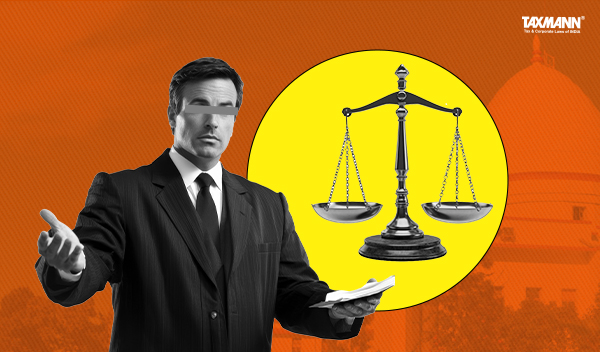Explanation to Sec. 14A Inserted by FA 2022 Is Applicable Prospectively | Gauhati HC
- Blog|News|Income Tax|
- 3 Min Read
- By Taxmann
- |
- Last Updated on 26 September, 2024

Case Details: Williamson Financial Services Limited vs. CIT - [2024] 166 taxmann.com 607 (Gauhati)
Judiciary and Counsel Details
- Vijay Bishnoi, C.J. & N. Unni Krishnan Nair, J.
- N.S. Saini & Z. Islam, Advs. for the Appellant.
- S. Chetia, Sr. Standing Counsel, for the Respondent.
Facts of the Case
The assessee, a company engaged in the business of Lease Financing, Financial Advisory, and Capital Market Operations, had filed its return of income for the relevant assessment year showing a loss. The case was selected for scrutiny, and a notice under section 143(2) was issued.
During the assessment proceedings, the assessee made a disallowance under section 14A not by following any systematic or specific calculation method but based on the disallowance made in assessment orders of earlier assessment years.
The Assessing Officer (AO) contended that the assessee had made only estimated disallowance and had accepted the fact that disallowance under section 14A was required to be made in its case. The AO made disallowance under section 14A based on the method of disallowance as provided under Rule 8D(1)(b)(ii).
Aggrieved by the order, the assessee preferred an appeal to the CIT(A), wherein the CIT(A) partly allowed the appeal. The matter then reached the Guwahati Tribunal.
High Court Held
The Tribunal held that the Explanation inserted in Section 14A by the Finance Act 2022 is applicable prospectively. Therefore, the disallowance under Section 14A cannot exceed the income claimed exempt. The Tribunal relied on the decisions of the Delhi High Court in the case of Era Infrastructure (India) Ltd. [2022] 448 ITR 674 and the High Court of Calcutta in the case of Avantha Realty Ltd. [2024] 164 taxmann.com 376. The assessee filed an appeal before the Gauhati High Court.
The High Court held that the Explanation to Section 14A of the Income Tax Act, 1961 is inserted vide Finance Act, 2022. The Ministry of Finance, Union of India, issued a Memorandum Explaining the Provisions in the Finance Bill 2022. It explicitly stipulates that the amendment made to Section 14A will take effect from 1st April 2022 and will apply in relation to the assessment year 2022-23 and subsequent assessment years.
Furthermore, the Supreme Court in Sedco Forex International Drill. Inc. v. CIT, (2005) 12 SCC 717 has held that a retrospective provision in a tax act that is “for the removal of doubts” cannot be presumed to be retrospective, even where such language is used if it alters or changes the law as it earlier stood. Therefore, the Explanation to Section 14A of the Income Tax Act, 1961, inserted vide Finance Act 2022, is applicable prospectively.
List of Cases Reviewed
- Principal Commissioner of Income Tax v. Era Infrastructure (India) Ltd, reported in [2022] 448 ITR 674 (Delhi) (para 14)
- Pr. Commissioner of Income Tax (Central)-2 v. M/s Era Infrastructure India Ltd., [ITA No.359/2024 & CM APPL. 39600/2024, order dated 16.07.2024 (para 15)
- Principal Commissioner of Income Tax, Central-1, Kolkata v. M/S Jas Toli Road Company Ltd., [ITAT/7/2024, I. A. No. GA/2/2024 (para 16)
- Principal Commissioner of Income-tax (Central) v. Avantha Realty Ltd. [2024] 164 taxmann.com 376 (Calcutta) (para 17)
- Principal Commissioner of Income Tax v. Uniparts India Ltd. [2024] 160 taxmann.com 92 (Delhi) (para 18)
- Principal Commissioner of Income Tax (Central) v. Keti Construction Ltd. [2024] 162 taxmann.com (para 19) followed.
- ACIT v. Williamson Financial Services Ltd [2022] 140 taxmann.com 164 (Guwahati – Trib.)(para 21) Reversed.
List of Cases Referred to
- Pr. CIT (Central) v. Era Infrastructure (India) Ltd. [2022] 141 taxmann.com 289/288 Taxman 384/448 ITR 674 (Delhi) (para 9)
- Pr. CIT v. Uniparts India Ltd. [2024] 160 taxmann.com 92/298 Taxman 212 (Delhi) (para 9)
- Pr. CIT (Central) v. Avantha Realty Ltd. [2024] 164 taxmann.com 376 (Calcutta) (para 9).
Disclaimer: The content/information published on the website is only for general information of the user and shall not be construed as legal advice. While the Taxmann has exercised reasonable efforts to ensure the veracity of information/content published, Taxmann shall be under no liability in any manner whatsoever for incorrect information, if any.

Taxmann Publications has a dedicated in-house Research & Editorial Team. This team consists of a team of Chartered Accountants, Company Secretaries, and Lawyers. This team works under the guidance and supervision of editor-in-chief Mr Rakesh Bhargava.
The Research and Editorial Team is responsible for developing reliable and accurate content for the readers. The team follows the six-sigma approach to achieve the benchmark of zero error in its publications and research platforms. The team ensures that the following publication guidelines are thoroughly followed while developing the content:
- The statutory material is obtained only from the authorized and reliable sources
- All the latest developments in the judicial and legislative fields are covered
- Prepare the analytical write-ups on current, controversial, and important issues to help the readers to understand the concept and its implications
- Every content published by Taxmann is complete, accurate and lucid
- All evidence-based statements are supported with proper reference to Section, Circular No., Notification No. or citations
- The golden rules of grammar, style and consistency are thoroughly followed
- Font and size that’s easy to read and remain consistent across all imprint and digital publications are applied



 CA | CS | CMA
CA | CS | CMA
